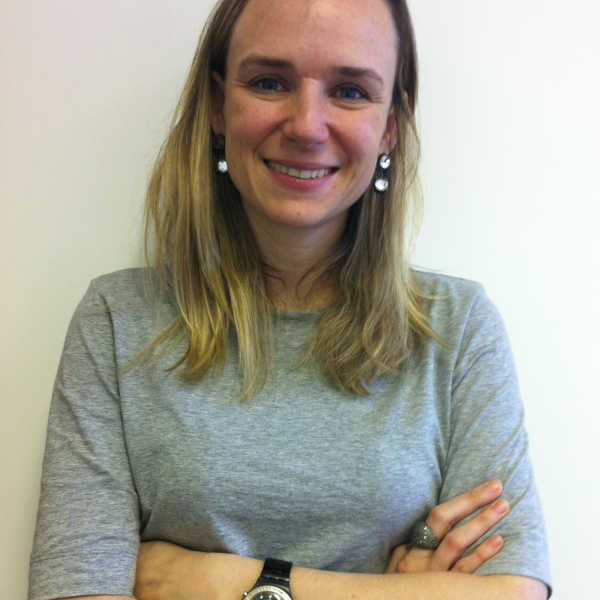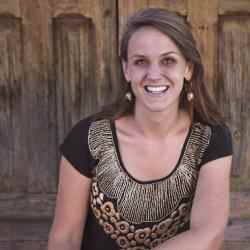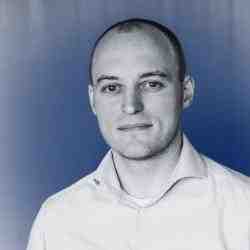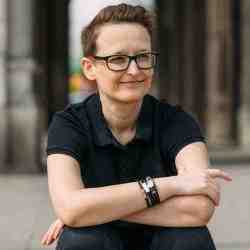Introduction
Through her organization Instituto Oncoguia, Luciana empowers cancer patients with information and personalized support, enabling them to take an active role in their treatment and recovery, while at the same leading changes in how society and health institutions view and treat the disease in Brazil.
The New Idea
The rate of diagnosed cancer cases is increasing globally. Because the disease is associated with pain, suffering, and death, a feeling of vulnerability and loss of control often accompanies the diagnosis. Luciana Holtz created Instituto Oncoguia to take her psycho-oncologist approach -- caring about the patient and her comprehensive knowledge of oncology -- to support and empower those affected by cancer. Oncoguia has an online platform that centralizes accurate and accessible information about all types of cancer, relevant for both patients and relatives or caregivers, as well as information about prevention and health for anyone. The platform, which recorded 4,500,000 visits in 2014, is Brazil’s foremost reference for quality cancer information. It is also leading the conversation in the country through blogs, social media, and virtual awareness campaigns on cancer prevention.
Besides this informative work for everyone, Oncoguia also supports patients and relatives through its 0800-line, informing them about their rights to healthcare and offering personalized support to help them access care. The goal is to make them “Responsible Active Patients” that take the lead on their treatment and in their lives. This program subsidizes Oncoguia with information for its third activity, which aims to change the health system. This involves implementing public policies for access to diagnosis and to better cancer treatments. Thanks to Oncoguia’s effort, two laws were passed: one mandating access to cancer treatment within 60 days of diagnosis and another requiring health insurance to provide oral chemotherapy to patients.
Although Oncoguia’s work already has national-level impact, however Luciana plans to further personalize what happens virtually to make sure that its quality information and support is accessible to anyone in Brazil. Through the project “Oncoguia Volunteer Agents,” Oncoguia will have volunteers all around the country to locally support patients. Former cancer patients will be able to pass along their expertise to current patients, and give back the support they received.
The Problem
Cancer is a global public health problem as the disease that causes the most deaths worldwide. The forecasts are not optimistic: cancer cases are predicted to increase by 50% by 2030 to around 22 million cases worldwide, a real epidemic. These trends go along with the aging and growing population, as well as the adoption of behaviors that often come with urbanization, such increased consumption of alcohol, tobacco, and processed food, and a decrease in exercise. The biggest impact will be felt in developing countries, as they will have the biggest increase in diagnosed cases but are not equipped to treat them. These regions are also less likely to be able to afford the high costs of treatments.
Moreover, cancer is a stigmatized disease, associated with pain, suffering, and death. Patients often look for information and support online and find both erroneous and frightening information, such as survival rates. They are left in a very vulnerable situation, not only in poor health but also feeling helpless and that they are losing control over their lives. As families and friends do not always know how to cope with the disease, they have a tendency to move away instead of showing support. Furthermore, medical staff that deals with patients are often not trained or resourced to have an empathetic approach or to address a patient’s overall mental as well as physical wellbeing.
An early diagnosis can be decisive in the survival and healing process. Most cancers can be eradicated at an early stage, but the fear of being diagnosed with cancer and the lack of information about first signs prevents patients from discovering it early. More than half of cancers in Brazil are diagnosed at an advanced stage, leading to more aggressive and more expensive treatments, and to higher death rates. Because treatment is so expensive, patients usually rely either on the public health system or on private health insurance. In the public system, the waiting lines to begin treatment are very long, which can be deadly in advanced or fast-spreading cases. Furthermore, there are many cases of private health insurance finding “gaps” in laws to deny patients access to specific types of treatments or surgeries.
While there are organizations engaged in the cancer sector, they are generally focused on one specific type of cancer. Some cancers, such as breast and prostate, are widely known, so people are more likely to be regularly examined for these. However, patients with lesser known or rare types of cancer remain uninformed about prevention, diagnosis, and right to access treatment. Stomach cancer, for example, is the second most common type of cancer, but the population knows little about it, they are not regularly tested, and are not aware of the first signs and symptoms. When patients are successful in navigating the information channels and in overcoming cancer, there is no platform for them to pass on the information to other patients. A comprehensive approach that raises awareness in society and the government and reforms the system for treatment is needed.
The Strategy
Luciana created Instituto Oncoguia (Oncoguide Institute) to change the way that cancer is dealt with in Brazil. Oncoguia has a platform with up-to-date and accessible information to empower the patients and their relatives or caregivers to improve their own quality of life. It has information on cancer, early detection, diagnosis, types of treatments, multidisciplinary support, cultural tips, patient rights, and clinical trials. Every type of cancer is documented on a specific page with patient-oriented information in both articles and videos by specialists. The content is carefully formatted to not only provide the facts, but to communicate appropriately with the reader, who is often scared and uninformed, in a friendly and clear way. Much more than an information platform, Oncoguia is a guide, which directs the patients towards the actions they should take to better cope with the disease and access treatment. The platform, which recorded 4,500,000 visits in 2014, has the International HonCode certification, created by Health on the Internet Foundation to attest the quality of information in health.
Oncoguia has created a community of cancer patients that connect through the website, through social media, and specific actions, such as support groups and the donation of head scarves by former patients to current patients. Social media (Facebook, Twitter, Instagram and YouTube) has proven a successful channel of interaction with patients. Oncoguia’s Facebook account has more than 116,000 followers with a strong engagement rate. One of its political posts that asked users to interact with politicians through Facebook and request support for one of Oncoguia’s bills generated 1,000 comments and reached more than 2 million people. However, as a reference platform for cancer and on health promotion to prevent the disease, the platform is broadly accessed, not only by cancer patients, but by society in general. It is the center for awareness campaigns on prevention, such as the “Take good care of your skin” for skin cancer prevention.
Oncoguia also has a personalized effort for taking care of patients, the “Patient Support Nucleus” (PAP), an 0800 hotline staffed by a team of social workers and psychologists. It receives 300 calls a month from patients and relatives seeking support or information, mostly about patient rights. The PAP team carefully relies on a network of legal and medical specialists to help support each caller. More than giving information about rights, Oncoguia also assists patients in guaranteeing them; in Brazil, some rights do exist but are not easily accessible. The Institute aims to enable patients to be “Responsible Active Patients.” For this, Luciana created a detailed script with the possible actions to be taken for each problem the patient could face in accessing healthcare. For example, if health insurance is refusing to cover treatment, the script has 4 or 5 predefined strategies that can help the patient solve the problem. In the case of a life-threatening situation, the patient is closely accompanied by the PAP until the problem is solved.
The close contact with patients through these programs enables Oncoguia’s advocacy work and to connect the politicians with patients’ real needs. The main focus of the advocacy program is to ensure better public policies related to access of diagnosis and treatment, through work with the Legislative and Executive branches, education for legislators, mobilization through social media and in the press, and by participation in different national forums that discuss the health system at large. Oncoguia helped pass two relevant laws at the national level: one that guarantees the inclusion of oral treatment to cancer (which represents 40% of chemo treatments) in health insurance plans and another that obligates the public system to offer treatment to cancer in a maximum of 60 days after the diagnosis.
Currently, Oncoguia’s two main projects are “The right to diagnosis in 30 days” and “The right to better treatments in the Public System”. Oncoguia also monitors the activities of the Executive, Legislative and Judiciary branches and shares relevant news on the web platform and in social media to keep the public updated on decisions and ways to influence them. Oncoguia also organized the annual National Forum of Public Policies Discussion, a pioneer gathering for the general public, patients, doctors and decision makers in order to discuss the challenges cancer patients face as well as public policy. During the forum, attendees are able to express their challenges, needs and opinions to the politicians, who then propose changes, and the citizens can then follow up. The two-day event welcomes 150 people a day in person and more than 900 online viewers, and is also strategic for fund-raising. In 2015, it took place inside Brazil’s Congress.
Oncoguia’s main expertise is related to the reality of cancer patients, regarding both oncology -- updated information, prevention and attention to early signs -- and dealing with patients in a humanized way. Thus, they also train doctors and social workers on these topics. Even though Oncoguia already has impact at a national level through technology, Luciana is implementing local actions in order to expand the reach to all patients in Brazil. Through the “Oncoguia Volunteer Agents” project, in 2015 at least one volunteer per state will start local activities related to institutional promotion and patient support. The Oncoguia Agent will be a volunteer charged with tasks such as: mapping cancer NGOs and services in their city, visiting them and promoting the Institute’s work, and supporting patients who need help locally. Most of the volunteers are former patients, which ensures an empathetic approach and a relationship of trust.
Luciana’s background as a psycho-oncologist brought Oncoguia its patient-centered approach. All its strategies, actions and priorities are defined by patients’ needs, based on detailed opinion research, focus groups, requests received through its programs, and meetings with strategic players in the cancer landscape. Luciana has been successfull connecting people and mobilizing diverse players towards her cause. Among her partners are: oncologists who support Oncoguia in its positioning, material production, and participating in events; medical societies, which are trained to pay attention to the signs and symptoms of cancer; other social organizations; private sponsors; journalists, who give voice to relevant subjects; and politicians. Thanks to her new leadership model, Luciana does not need to be physically present in all spaces of the system–her partners and volunteers are ultimately the supporters and replicators of the work.
The Person
Luciana was born in the countryside of São Paulo, where she was raised close to older relatives. In high school, she undertook a vocational guidance program and became interested in the work of the psychologist who led it. Because of this experience, Luciana decided to study Psychology, and during her undergraduate classes she was always most interested in disciplines related to pain, death, and hospitals. When engaging with these issues, she realized that she wanted to work with cancer patients, with the aim of diminishing their pain. To learn more, Luciana knocked on different oncologists’ doors and asked to work with them as a psycho-oncologist. In parallel to this work, Luciana also helped run clinical trials at a pharmaceutical company, where she had to monitor doctors and their studies. This was an important experience for her, to get to know and understand the work of pharmaceutical companies.
As a part of the directory of the Psycho-oncology Society in Brazil, Luciana volunteered to help with its communication through their website and newsletter. Eager to support cancer patients through her psycho-oncology perspective, she convinced a hospital that it was important to have a psycho-oncologist see the patients and complement the doctors’ more physical health-focused perspectives. Luciana became the hospital’s first psycho-oncologist and the doctors rapidly saw the value of the contributions from her perspective. She worked there for five years, and the psycho-oncologist role is now standard at this hospital. There, she also created a support group for patients and families.
Through this work, Luciana realized that patients often look for information online and end up scared with what they find. Thinking about the quality of the information available and wanting to go deeper into this subject, Luciana did a graduate degree in Bioethics, where she focused on ethical health dilemmas. There, she discussed focused on patients’ rights to autonomy. Wanting to find a way to better support patients, in 2003 Luciana created a website for quality information about cancer, called Oncoguia. In order to get the best information possible, Luciana used her connecting skills to get closer to the various players of the sector.
In 2008, while still working as a psychologist and managing the platform, Luciana brought the global Susan G. Komen Breast Cancer Awareness initiative to Brazil. She managed the entire project, in which she trained other cancer-awareness NGOs to make changes at a national level. Her role in Komen and Oncoguia complemented each other. They both opened possibilities and opportunities for each other, and allowed Luciana to get to know all the players of the sector in Brazil and abroad. As Oncoguia was growing, Luciana realized that she had to be fully dedicated to her cause. Thus, she created Instituto Oncoguia in 2009 and since then, she has been working full time in her social enterprise.




